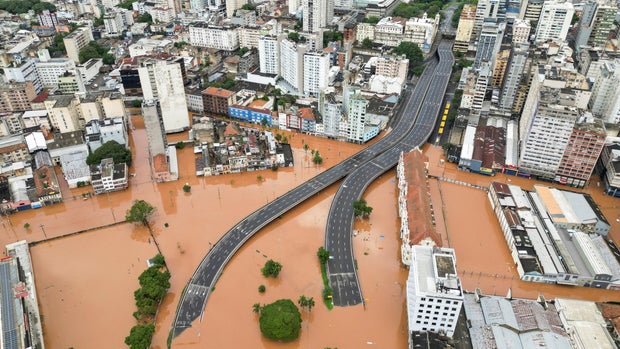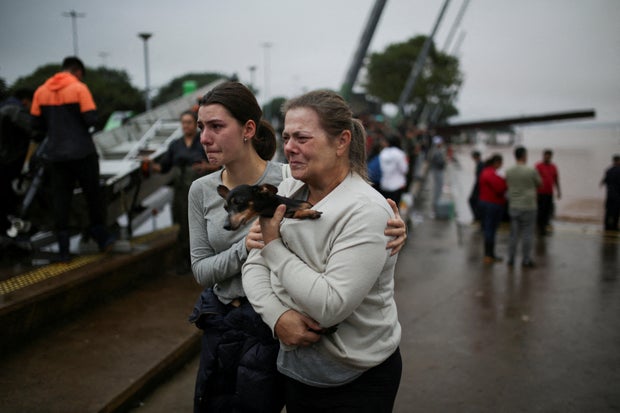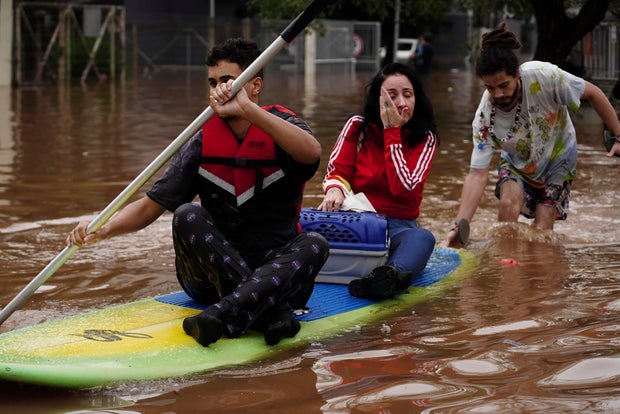Porto Alegre — From top to bottom, rescue teams have been searching buildings in Porto Alegre looking for residents trapped in apartments or rooftops, such as unprecedented floods transformed the streets of the Brazilian metropolis into rivers. In the Sarandi neighborhood, the state capital, firefighters first evacuated people who had found refuge on the roofs of apartment buildings and then went to get those on the highest floors.
“Now, we are evacuating those on the second and third floors,” Daniel Batista da Rocha, a firefighter in the flood-hit state of Rio Grande do Sul, told AFP during a search on Sunday. But the task is complex in a city with many tall buildings, wide avenues and around 1.4 million inhabitants.
“There’s a lot of water… it’s deep. The (rescue) boats are moving at the same height as the power cables. So, to navigate, you have to cut the cables,” said Rocha, dressed in a neoprene suit. life jacket and yellow helmet.
Renan Mattos/REUTERS
Floods had killed at least 83 people in the state as of Monday morning, according to the civil defense agency, with dozens missing and around 115,000 forced to leave their homes.
In addition to Porto Alegre, hundreds of cities and villages were affected, leaving thousands of people without access to drinking water, electricity, telephone or internet.
Time was ticking for rescue teams to reach those still missing in the worst climate disaster that would ever happen to the rich southern region of Brazil. According to Porto Alegre city hall, the level of the Guaíba River that passes through the city reached around 5.4 meters on Sunday – higher than the previous record recorded during the historic floods of 1941.
Volunteers were assisting professional rescuers involved in the search operation.
Renan Mattos/REUTERS
“We are doing everything we can to help. Everyone helps in their own way,” said volunteer Luis Eduardo da Silva, 32 years old, from Porto Alegre.
Their mission was to collect essential supplies such as life jackets, water and fuel to take to those in need. He said these deliveries are being made during the day, when it is “easier to locate” people amid the devastation.
“At night it gets complicated,” said Silva.
Carlos Macedo/AP
People also delivered bottled water and food to makeshift distribution points around the city, including gas stations.
The state government appealed for donations of mattresses, sheets and personal hygiene products. Many neighbors lent boats and jet skis to help with the rescue effort.

























